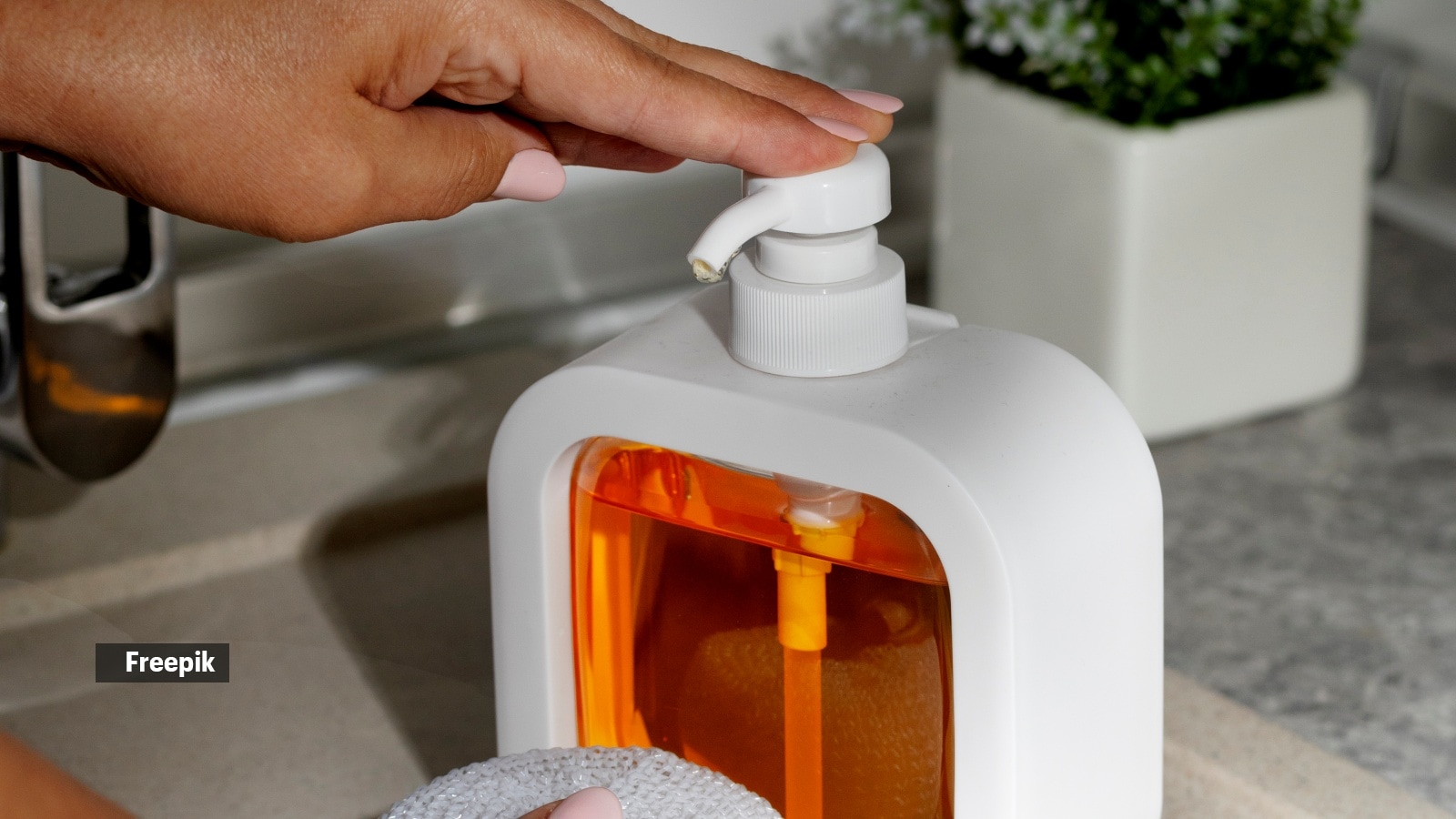📣 For more lifestyle news, click here to join our WhatsApp Channel and also follow us on Instagram
From cash to escalator handrails, 6 common items you must wash your hands after touching
Take a look at 6 common objects you touch daily, and why you should make it a habit to wash or sanitise your hands after coming in contact with them.
 Representational image of an escalator handrail. (Source: Freepik)
Representational image of an escalator handrail. (Source: Freepik) We are all guilty of doing it — walking through our homes or offices, touching countless things without thinking twice. A doorknob here, a light switch there, maybe a few notes of cash exchanged at a store. These everyday items may look harmless, but they are silent carriers of germs, bacteria, and viruses that can easily make their way onto your hands — and eventually into your body.
Here’s a look at 6 common objects you touch daily — and why you should make it a habit to wash or sanitise your hands after coming in contact with them.
Door Knobs
Think about it — everyone touches door knobs multiple times a day, whether at home, in offices, or in public spaces. According to several studies, door knobs and handles can harbour thousands of bacteria per square inch, including E. coli and Staphylococcus aureus, both of which can cause infections. Since metal surfaces allow germs to survive for hours, it’s best to wash your hands immediately after touching public or shared knobs. If that’s not possible, use a sanitiser with at least 60 per cent alcohol before touching your face or food.
Money
Cash notes and coins pass through hundreds of hands and environments — from sweaty palms to dusty counters. Bacteria and microbes linked to skin and respiratory infections are usually detected on currencies, which are circulated widely. Even though India is moving toward digital payments, physical currency still dominates in many areas. After handling cash, especially coins, make it a point to wash or sanitise your hands thoroughly.
Handrails
From staircases to escalators and public transport, handrails are designed for safety — but they often collect layers of dirt, sweat, and microorganisms from hundreds of hands daily. Because they’re rarely cleaned, these surfaces can become a hotspot for bacteria and even viruses, such as the common cold and flu. So the next time you grip a handrail for balance, remember to sanitise afterwards.
 Representional image of a soap dispenser. (Source: Freepik)
Representional image of a soap dispenser. (Source: Freepik)
Switch Boards
Light switches are one of the most frequently touched but least-cleaned surfaces in any home. From kitchen switches coated with oil splatters to bedroom panels touched after returning from outside, these spots can accumulate germs quickly. In fact, studies show that switchboards can carry more bacteria than toilet seats if not cleaned regularly. Use disinfectant wipes to clean them once a week — and if you have just switched on a light in a public restroom or shared area, make sure to wash your hands soon after.
Soap Dispensers
It might sound ironic, but soap dispensers themselves can be a source of germs — especially in public restrooms. People often touch the handles or pumps before they’ve washed their hands, leaving behind a mix of bacteria and viruses. While the soap inside the dispenser usually kills germs, the pump nozzle and exterior can easily spread them. If possible, use touch-free dispensers or sanitise your hands after using shared ones.
Toilet Seat
This is perhaps the most common source of bacterial infection, especially in public restrooms. Even though the risk of serious illness is lower than most people think, it’s still best to take precautions. Clean the seat with a sanitiser or tissue before using it, and always wash your hands thoroughly afterwards.
📣 For more lifestyle news, click here to join our WhatsApp Channel and also follow us on Instagram
- 01
- 02
- 03
- 04
- 05



























